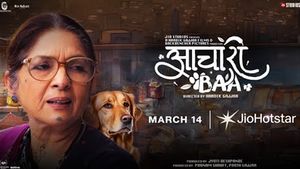


Fanaa, Kabhi Khushi Kabhie Gham, Kuch Kuch Hota Hai, Jo Jeeta Wohi Sikander, Dilwale Dulhania Le Jayenge, and more movies include music composed by Lalit Pandit of the renowned Jatin-Lalit duo. After their split, Lalit has been making independent music and has recently released his new song Zara Dil Khol Ke Jeene Do, in which he features too. In an exclusive interview with BollywoodMDB, Lalit Pandit spoke about his new song, making independent music, and controversies surrounding songs.
I have been making independent music and I am quite enjoying it. All my life I have made music for the film. When you make songs for films it is according to the situation, condition, and director’s vision, it is very difficult but at the same, it is very exciting. But there is a different thrill in making independent music, there is creative freedom and there is a pleasure that I feel. And this is special because I shot it at the school where I studied in Panchgani. A very young writer Aastha has written the song which I have sung.
I did not find any difficulty in shooting the song and it was quite simple. It wasn’t like I had to act like a hero, I just had to act natural. The real part is making the music.
This song was there with me for some time and the thing is that this song had a non-filmy touch which is why I worked on it. And audiences are loving it. The thing is film songs are heavily promoted and reach faster to the audience whereas independent music takes time and pace to reach.
It is a time like this that controversies are joining from everywhere. I think you can point out negative things from everything according to your opinion. Songs like this were also made earlier but earlier there were no objections. But there is such a good censorship board and qualified people, we should just leave it to them. They have better knowledge and expertise. So, you just give your opinion and leave everything else on the censorship board. There should be creative freedom. Like Amitabh Bachchan sir said that there are a lot of changes in every film industry around the world, and you should learn to absorb it.





























